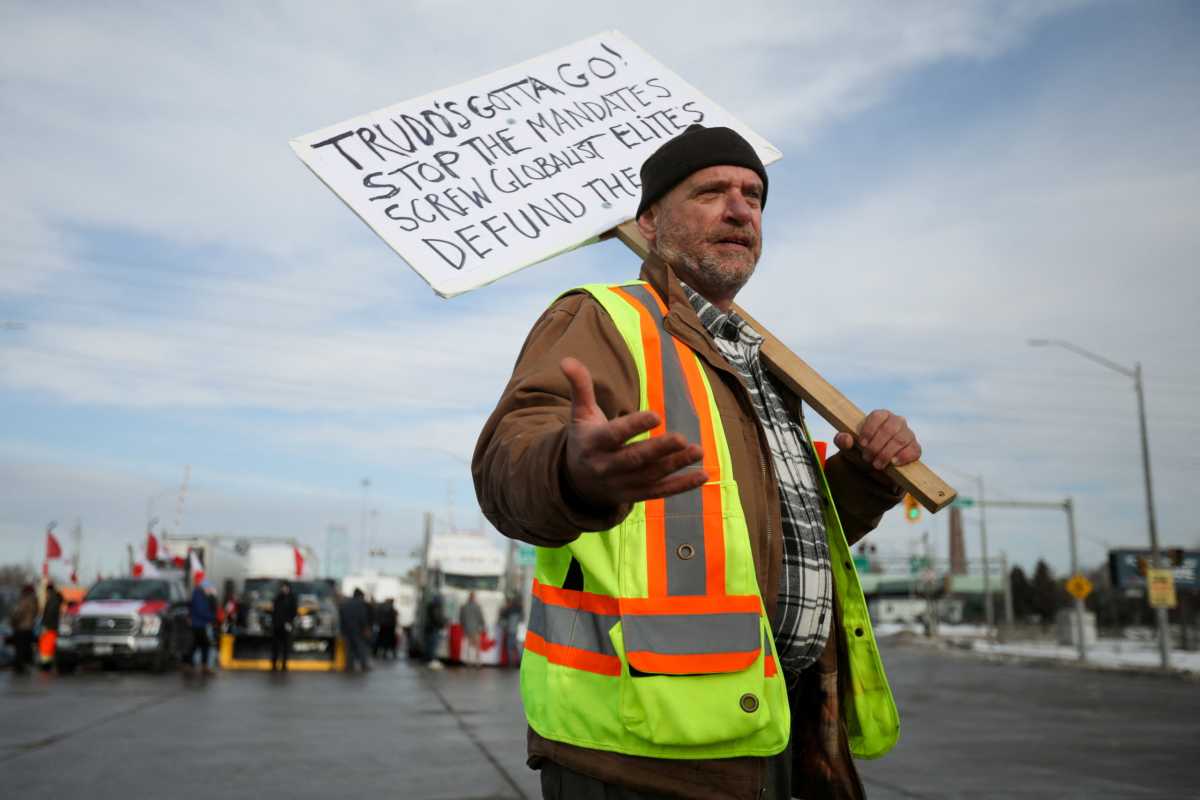By Carlos Osorio Blair Gable and Jarrett Renshaw
Truckers blocking U.S-Canada border crossings risk hurting the auto industry and agriculture, the White House said on Wednesday as Ottawa urged an end to the 13-day demonstration against coronavirus mandates.
After nearly two years of pandemic measures in many countries, opposition has sprung up in different ways with copycat protests in Australia, New Zealand and France as the highly infectious Omicron variant begins to ease in many countries.
Horn-blaring protests have being causing gridlock in the capital Ottawa since late January and from Monday night, truckers shut inbound Canada traffic at the Ambassador Bridge, a supply route for Detroit’s carmakers and agricultural products.
Another border crossing, in Alberta province, has been closed in both directions since late on Tuesday.
Starting as a “Freedom Convoy” occupying downtown Ottawa opposing a vaccinate-or-quarantine mandate for cross-border truckers mirrored by the U.S. government, protesters have also aired grievances about a carbon tax and other legislation.
“I think it’s important for everyone in Canada and the United States to understand what the impact of this blockage is – potential impact – on workers, on the supply chain, and that is where we’re most focused,” White House spokesperson Jen Psaki said on Wednesday.
“We’re also looking to track potential disruptions to U.S. agricultural exports from Michigan into Canada.”
Reuters




























